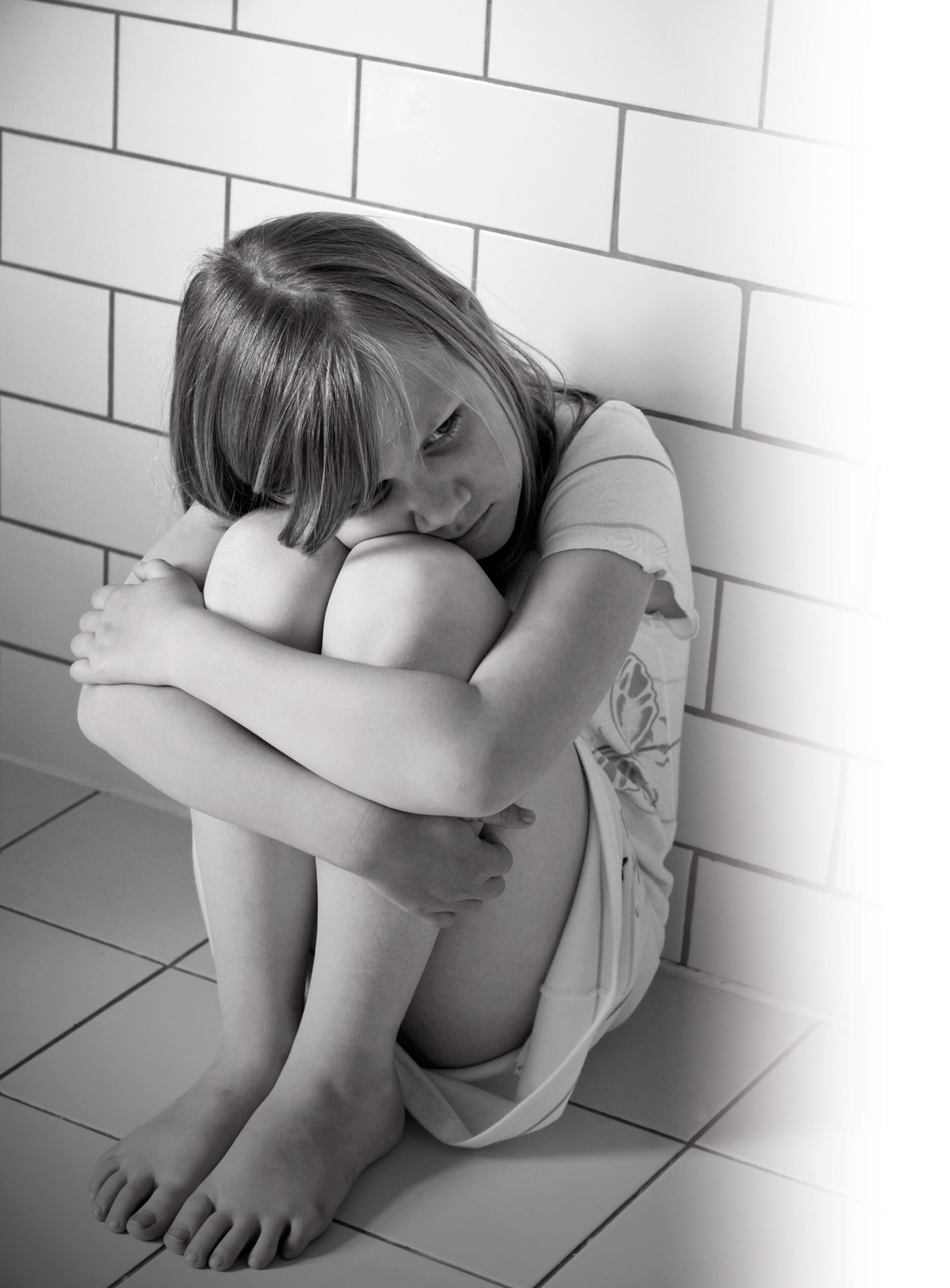If your child is unnaturally quiet and withdrawn, something may be brewing that you need to investigate. Verbal or physical abuse can make a child shy away from social contact and suffer silently. It’s of vital importance to communicate with the child and draw him out, says Kiran Manral
he Chennai student who knifed his teacher to death. The Oslo killer who walked around calmly shooting down 69 teenagers at a camp and bombed two government buildings. The Virginia Tech massacre where the perpetrator had shot down and killed 32 people and injured 25 others before committing suicide. These and many other such cases of youngsters going berserk and turning violent have one common thread. The perpetrators were described as socially withdrawn.
Why they withdraw
Why do children and adolescents withdraw into their shells, and why does it often take a terrible turn? Social withdrawal could be a sign of depression amongst youngsters. During adolescence, in a quest for their identity, teens tend to turn away from their parents and get more involved with their peer groups. But, total isolation and withdrawal from their peer groups as well should be a cause of concern for parents. Many factors can contribute to this. Children might be isolated in school and college and peer groups because they don’t fit in. They may feel misunderstood and unwanted. They may also feel that everyone mocks them or laughs at them. This makes it impossible for them to make and sustain friendships.
How they feel
To start with, know your child’s temperament. Some children are naturally introverted, others are extroverted. If your child is an introvert, he may be hesitant to be a social animal and withdraw from social situations. That is normal for this kind of child. You should worry if this behaviour becomes extreme. Also, if your child is outgoing and extroverted and suddenly withdraws into his shell, you must find out why. Children can be affected by being not accepted or being socially isolated. They are quick to nurture negative thoughts, withdraw into their own quiet spaces and become depressed. In extreme cases, they could even consider suicide. In a few horrific situations, the pent-up rage can turn outwards into murderous attacks on others, as in the examples mentioned above. Socially withdrawn children lack the peer group support to have their self esteem validated. They may not have the inclination to go for social outings with peers or may not be included. They may feel socially awkward, feel they lack social skills and become even more withdrawn and isolated as a consequence. Social withdrawal might just be a simple case of withdrawal or be linked with other disorders like severe anxiety, mental ailments and personality disorders. Children with Attention-Deficit Hyperactivity Disorder (ADHD) were found to have higher levels of social withdrawal.
What you can do
As a parent, what can you do to prevent your child from withdrawing into himself? This can be a scary period for a parent. You don’t know what is normal and when you should start getting concerned. The best place to start would perhaps be by talking to the child as much as possible. A child who is normal and communicative might go into a sudden withdrawal phase for many reasons—arguments with friends, unrequited crushes, being picked on by a peer or a teacher. You might want to give the child some space at this point and make sure they know they can come back to you anytime with anything they might want to talk about. If this withdrawal lasts for more than two weeks, and if symptoms accelerate to include actions of self-inflicted injury or suicide attempt or an inability to function normally in a daily routine situation and be participatory at home and at school, you might want to speak with a counsellor or a mental health professional.
It’s all about self- esteem
Constantly work on building your child’s self-esteem in a positive manner, not in a manner that would inflate his ego. A child’s self-esteem, if healthy, will help him face the challenges of the world in a resilient manner. Children who know that they are valued and good at certain things have positive self-esteem and tend to be realistic and positive and look for things to enjoy life. Children with low self-esteem tend to think negatively about themselves. They have self critical, negative thoughts, become negatively oriented towards friends and family, keep thinking they are not good at anything and cannot do things well, and are not worth it. Asked to do anything they immediately retort with, “I can’t do it.”
Build your child’s self-worth
Healthy self-esteem comes from knowing that you are loved and valued and that you can achieve what you set to do. Children’s self esteem is never constant; it fluctuates from low to high to average as they grow, achieve, fail and learn. They might learn they are good at certain things and bad at others. They’ll learn how to cope with failure and rejection. Children who have low self esteem frequently indulge in negative self talk, “I’m stupid,” “I can’t do anything right,” “Everyone laughs at me,” for example. They don’t complete tasks, but give them up midway. They avoid interacting with family or peer group.
On the flip side, kids with healthy self esteem interact comfortably with other children, initiate and maintain friendships, encourage and seek out group activities as well as independent pursuits. They are comfortable working as a group and can disagree and find a resolution to a contentious issue without it becoming a cause to end a friendship. A child with healthy self-esteem persists in concluding a task, asks for help if they can’t figure something out rather than blame themselves for being too stupid to figure it out themselves.

Caring ways to help your kid bounce back
Be careful of what you say: Your words can have a positive impact on what the child forms as an image about himself. Keep up with the positive reinforcement. Pick out and comment on the positive achievements, or the effort rather than focusing on the negative.
Be a good role model: Your child emulates you. Don’t be too self-critical of yourself or your abilities. If you are optimistic about yourself and the life you have, your child will mirror you.
Pay attention to what your child says: When your child does say something negative about himself, be quick to refute it with concrete examples of why they have a wrong perception about themselves.
Be accurate about your assessment: Have a realistic picture of their abilities and don’t glorify them. Put their positive achievements in the limelight when talking about how they need to work on areas they aren’t too good at.
Be affectionate: Hug and kiss your child. Show them that they are wanted and loved. Tell them how proud you are of them. Boost their self-esteem with regular praise and positive feedback, but be careful not to overdo it for fear of giving them a swollen head. Make sure you word your comments appropriately.
Acknowledge the child’s feelings: Make sure you explain to the child what would have been an appropriate response to deal with those feelings. Giving positive feedback for feelings handled positively and pointing out the possible harm that could result from negative handling of feelings will help the child.
Keep the home happy and peaceful :A child who comes from a home with domestic violence, constant fights and bitterness and who feels insecure and threatened may have self- esteem issues, face trouble creating and maintaining friendships with peers and may be prone to bullying and being picked on by others.
Zero in on activities that your child enjoys: Get kids involved in working with underprivileged children, or in helping younger children master an art they themselves are good at. Help them find hobbies that they enjoy. This helps boost self-esteem.
Seek professional help, if necessary: If your child is socially withdrawn for an extended period, he may need help. Trained counsellors can work with a child and trace specific issues that are impacting a child’s self-esteem and help him through it. Children may be more ready to open up with them rather than with people from within the family, friend circle or teachers they might be resistant towards. Parents may also not be subjective enough while discussing a child’s issues. It may be better for a third person to hear the child out.
Parenting is a tough job. With a bit of attention, care and by being alert parents, you will be able to work with your socially withdrawn child and draw him out to be a regular, happy and positive child. Be alert! That’s the key word.


